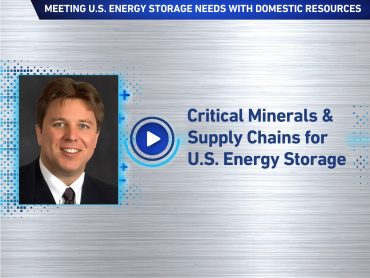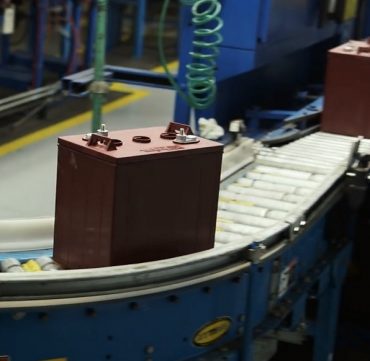
There’s no denying that the pandemic has changed how we consume information. Convenient, “on-demand” video access is in demand to fit busy schedules and reduce in-person contact.
For these reasons and more, Essential Energy Everyday, the communications initiative of Battery Council International (BCI), has launched a series of highly informative, on-demand video webinars, each about 20 minutes in length. All are designed to aid policymakers in their understanding of energy storage, supply chain, and manufacturing infrastructure issues.
“We know that policymakers and our stakeholders are very busy people,” said Roger Miksad, BCI executive vice president. “Just as streaming has become a preferred method for viewing entertainment, we believe it’s also an effective way to connect with policymakers. Our goal is to give them easy access to information they’re looking for on their schedules, rather than a rigid one-time offering.”
First Briefing: Critical Minerals & Supply Chains for U.S. Energy Storage
The first briefing, “Critical Minerals & Supply Chains for U.S. Energy Storage,” launched November 1, 2021. It features an insightful conversation between Miksad and Dr. John Uhrie, vice president of exploration, research and technical development for The Doe Run Company. The industry leaders discuss the role of metals and minerals for a low-carbon future in the U.S. and internationally.
In the briefing, Dr. Uhrie elaborates, “The low-carbon future is coming, and there are a variety of minerals that are central to this low-carbon and renewable energy future.” He adds that these minerals are essential to the global battery market, which today is about $90 billion in value, but by 2030 will be $150 billion.
Miksad and Uhrie also examine the closed-loop manufacturing system that keeps 130 million lead batteries out of landfills each year and provides a continuous supply of recycled lead to manufacture new batteries. With a 99% recycling rate, the lead battery is the most sustainable battery chemistry available.
Webinar Series Addresses Legislative Priorities
Miksad noted that during the pandemic traditional engagement with policymakers in their offices or through in-person fly-ins has been paused. So, organizations like BCI are seeking more creative ways to maintain relationships.
“Our content is designed to highlight ways to meet U.S. energy storage needs through domestic resources, and address why supply chains, manufacturing infrastructure, minerals and battery innovation are essential to meet these goals,” added Miksad. “Our industry is engaged in creating products and services that are directly relevant to many of Congress’s legislative priorities.”
For sure, the way the world consumes entertainment, news and sporting events shifted during the pandemic from in-person participation to a more virtual experience. Neil Patel, who is termed a top web influencer by The Wall Street Journal, says live streaming is the best marketing tool in 2021. Dacast, an on-line, live streaming video platform launched in 2010, explains its popularity by serving as an essential tool in the professional world to help businesses and organizations connect with audiences on a deeper level, despite the barrier of physical location.
Additional Briefings Coming Soon
Watch this space for future webinars that will address topics like the role of lead batteries in supporting the electric vehicle transition. Email info@batterycouncil.org to be notified of future webinars.








